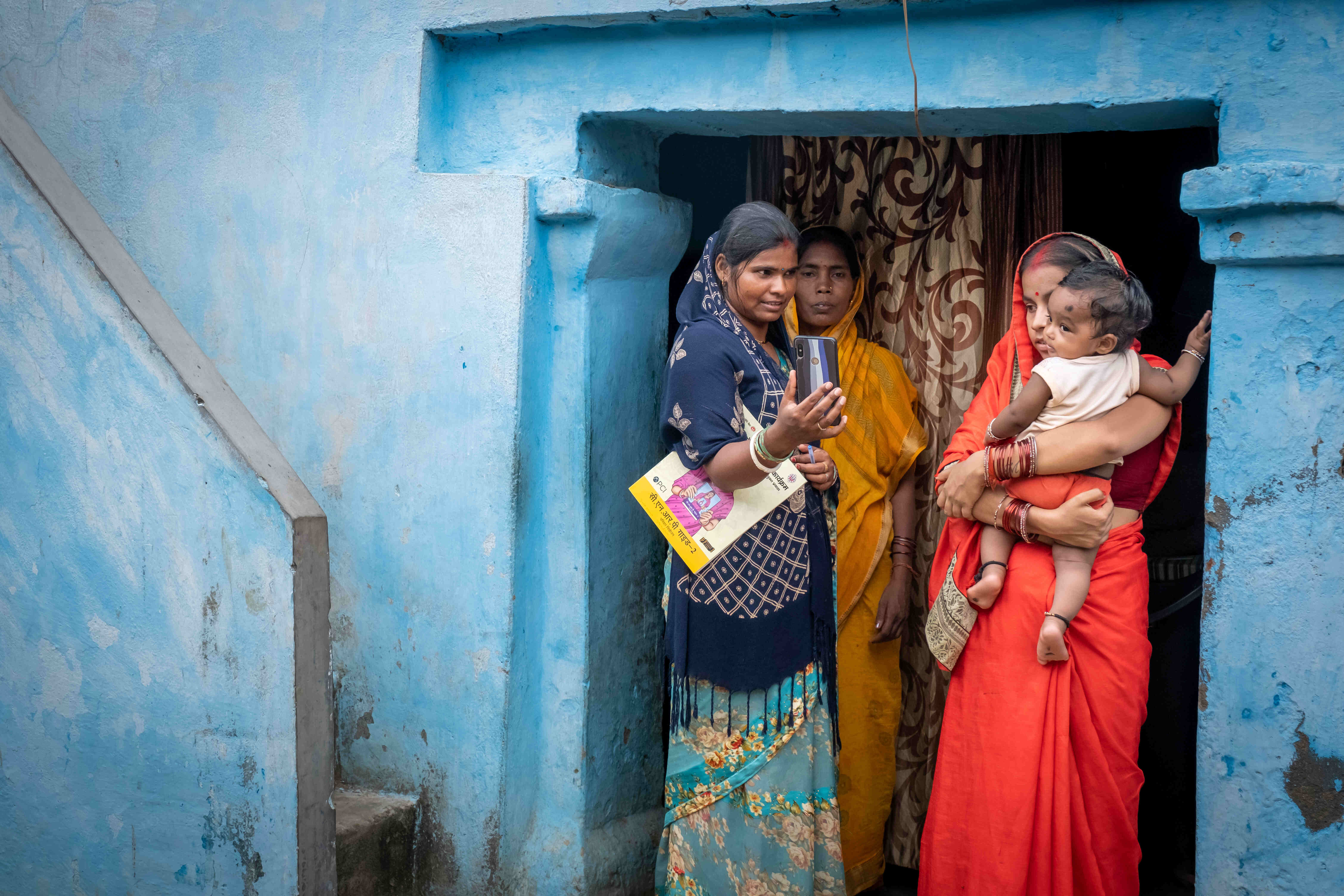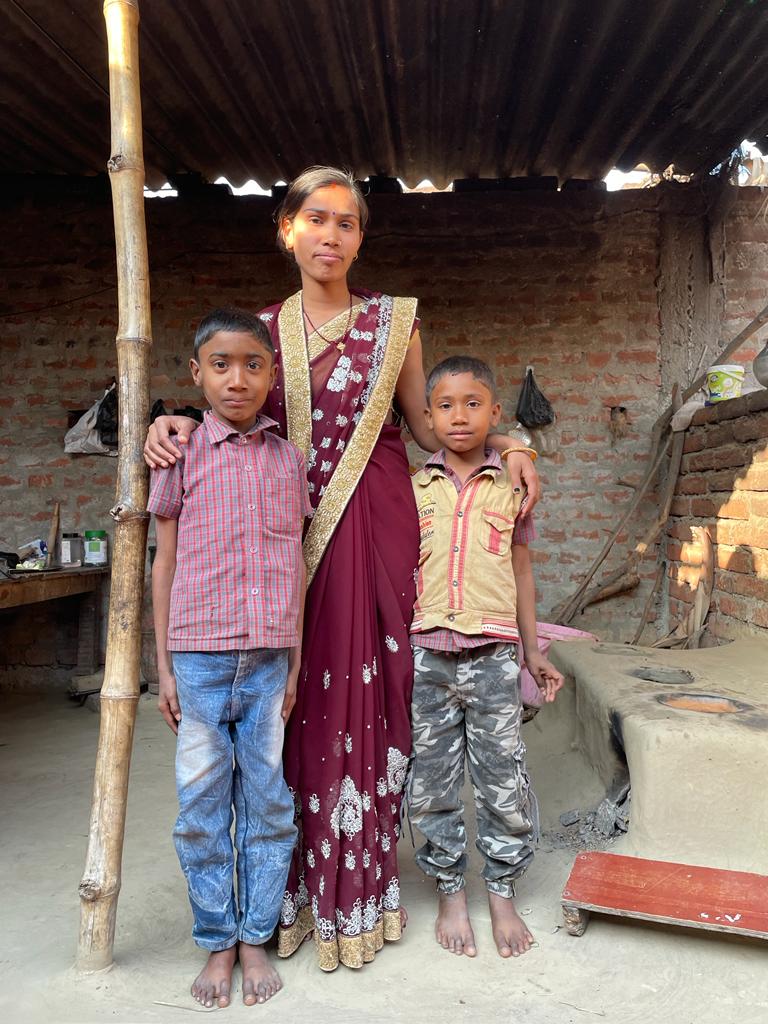 Poshan Sakhi with women benefeciaries from Bihar
Poshan Sakhi with women benefeciaries from Bihar
“Consume at least five food groups every day,” echoed the women at a self-help group meeting in Ratni village of Bihar. “Have a mix of grains, vegetables, pulses, dairy products, meat, eggs and fruits rich in vitamin-A for a healthy life,” they continued.
It was exhilarating to see rural women in Bihar’s Jehanabad district - where almost a third of the women are illiterate - talk convincingly about complex dietary concepts that could perhaps be foreign to many in urban India.
It was equally exhilarating to see how the women’s newly acquired knowledge was bearing fruit. “When my first child was born in 2014, he was just 2.6 pounds,” said Ruby Devi, a home maker in Ratni village. “He used to fall sick often and grew up to be a slow learner.” But after 2016, when Ruby Devi learnt what she should and should not eat during her pregnancy, the right gap to keep between her pregnancies, and what and how she should feed her baby, her second child was born at a more normal weight of 8 pounds. Now, her younger son is ready to start second grade, while the elder one remains in the first grade.
Having seen the difference that good nutrition can make, Ruby Devi now reaches out to other pregnant women in her village to share her experience. Stories like Ruby Devi’s are quite common in rural Bihar where knowledge gained at self-help group meetings has helped improve the well-being of both mothers and children.
Today half the state’s children under 5-years of age are eating a more diverse diet than before. Before 2018, just 2 out of 10 were doing so. The diet among women of reproductive age has also improved during this period (2018-2022) with 6 out of 10 women eating better, compared to just 2 out of 10 before . The change is particularly significant for a state which has the highest percentage of stunted children in India - 41 percent of children below five years of age are underweight, and 69 percent are anemic, according to data collected between 2019-2021[1]. Global studies have shown how nutritional deficiencies in the first 1,000 days of life lead to slow physical development and cognitive impairment, with correspondingly poor educational outcomes.
So, what made the difference? Large-scale communications around health, nutrition and sanitation and capacity building of cadres, along with sustained livelihood promotion were the key to improving the nutrition of rural households.
The project relied on a unique approach of knowledge transfer through community resource persons. Select Self Help Group (SHG) members were enabled to function as ‘Poshan Sakhis’ (nutrition friends). These young and motivated change agents, selected from the community, underwent rigorous training in health and nutrition in collaboration with the Department of Health, Social Welfare and apex national health institutes—essentially the top medical institutes in the country-- like the All India Institute of Medical Sciences, Patna. Importantly, the training emphasized reaching out to the most vulnerable segments of society - children below 5 years of age, and women of reproductive age, as well as pregnant women and lactating mothers. .
The Poshan Sakhis now have a new sense of pride. Said Kavita Kumari, a Poshan Sakhi from Jehanabad district’s Makhdumpur block: “From a homemaker in 2016 to an SHG member under JEEViKA, and now as a JEEViKA community resource person has been a big change for me. I never imagined this happening in my life. Today, women across the district recognize me and I feel happy when they listen to me and follow what I say.” This peer- to- peer learning among women has helped JEEViKA to scale up the interventions rapidly and promote the adoption of good practices.
It is as much as testament to the women’s enthusiasm as to the state’s commitment to improving nutritional outcomes that, over the last three years, the number of Poshan Sakhis in Bihar has almost doubled, from 3,731 in 2020 to about 7,500 today. Given the program’s significant impact, JEEViKA has been recognized as a national resource organization for health and nutrition in India .
To build on these achievements, it will now be critical to ensure a sustained enabling environment for better health and nutrition. Said Rahul Kumar, Chief Executive Officer of JEEViKA: “Better nutrition and health of rural women lays a solid foundation for the next level of socio-economic transformation in the lives of more than 13 million families. JEEViKA remains committed to deepen these innovations and usher a new era of sustainable prosperity in rural Bihar.”






Join the Conversation